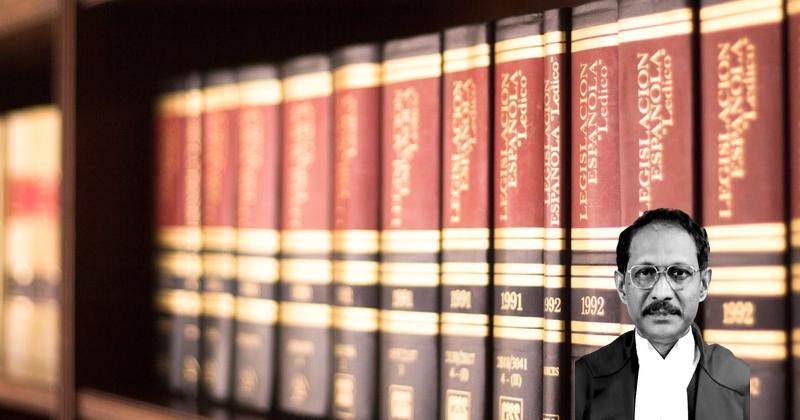In the case of Hanuman Laxman Aroskar v. Union of India, the National Green Tribunal addressed crucial issues regarding environmental protection and sustainable development. The petitioner raised concerns about the impugned notifications, highlighting violations of Article 14 of the Constitution. The respondent, represented by the Additional Solicitor General, presented arguments on the necessity of amending the notifications in alignment with sustainable development principles. This case has far-reaching implications for environmental regulations and conservation efforts.
Facts
- The appeals are against the judgment and order dated 28 October 2020 by the National Green Tribunal, New Delhi.
- There is also a challenge to the order dated 24 December 2020, where the NGT rejected the review petition filed by the appellant.
- The appellant sought a review of the impugned judgment through the review petition which was rejected by the NGT.
Also Read: Sungani Bai vs. Sailesh Joshi Legal Dispute Summary
Arguments
- The Central Government made a reconsideration in response to the EP Rules and previous court decisions.
- The decision in the case of Hanuman Laxman Aroskar v. Union of India was referenced.
- The decision in Deepak Kumar case still stands, requiring EC for leases of minor minerals for areas less than 5 hectares.
- The amended impugned notification exempts extraction of ordinary earth for linear projects but requires compliance with SOP.
- There will be no regulation for the extraction of ordinary earth for linear projects as per item 6.
- The first EC notification was issued under Section 3 of the EP Act.
- Item 6 was considered arbitrary and violative of Article 14 of the Constitution.
- Section 3 of the EP Act empowers the Central Government to protect and improve the environment.
- The issue was directed to be reconsidered under the impugned judgment.
- A blanket exemption for extraction may defeat the purpose of the EP Act.
- The respondent, represented by the Additional Solicitor General, argued that the amendment to the first EC notification was necessary due to the insertion of Section 8B in the Mines and Minerals (Development and Regulation) Act, 1957.
- It was highlighted that objections to the draft notification were not invited before its publication.
- The matter was discussed in meetings with the Expert Appraisal Committee (EAC) and the Ministry of Environment, Forest and Climate Change (MoEF&CC) to uphold the principles of sustainable development.
- The amended notification now includes safeguards and compliance requirements, making the exemptions not arbitrary but subject to the Standard Operating Procedure (SOP).
- The respondent argued that these actions align with sustainable development principles and do not violate the EP Rules.
Also Read: Customs Valuation Dispute: Appellant vs. Adjudicating Authority
Analysis
- The impugned notification, along with the amended impugned notification, violated Article 14, item 6 of the Constitution of India, thus needing to be struck down.
- The Standard Operating Procedure (SOP) did not provide regulatory machinery for implementation and did not refer to item 6 specifically.
- No restrictions were imposed on the quantity of ordinary earth extraction for linear projects, leading to arbitrariness.
- The challenges to the impugned notification included deliberate circumvention of procedures, favoritism towards private miners and contractors, and ignoring environmental norms.
- The amended item 6 continued to suffer from the same arbitrariness as the original, violating Article 14 of the Constitution.
- The impugned notification lacked reasoning, evading necessary procedures of public objection and publication during Covid-19 lockdown.
- The substituted Appendix-IX and the amended impugned notification did not consider objections or provide adequate reasoning, thus being deemed illegal.
- The contentions regarding illegal invocation of power under Rule 5(4) of the EP Rules were not adequately addressed.
- Issues with the enforcement of SOP and environmental safeguards were highlighted, questioning the efficacy of the regulatory mechanisms.
- The exemption for ordinary earth extraction lacked appropriate safeguards and was arbitrary, violating principles like Polluter Pay and sustainable development.
- Section 3 of the Environmental Protection Act empowers the Central Government to take necessary measures for protecting and improving the quality of the environment.
- These measures include coordination with State Governments, laying down environmental standards, regulating emissions and discharge of pollutants, and handling hazardous substances.
- Rule 5 of the EP Rules further elaborates on the factors considered for prohibiting or restricting the location of industries and processes in different areas.
- Factors like environmental quality standards, pollutant concentration limits, adverse environmental impact, and proximity to protected areas are taken into account.
- The Central Government must follow a specific procedure, including notifying its intention, considering objections, and imposing restrictions within a defined timeframe.
- In cases of public interest, the Central Government can dispense with the notice requirement.
- NGT ordered the Central Government to implement directions mentioned in paragraphs 8 and 9 of the impugned judgment regarding item 7
- Impugned notification challenged by Petitioner was not challenged by any respondent
- Respondents are obligated to implement directions related to item 7 of the impugned notification
- Item 6 of Appendix-IX from the impugned notification dated 28 March 2020 and item 6 are struck down
- No safeguards provided despite specific directions in the impugned judgment regarding processes, excavation modes, and quantum
Also Read: Interim Compensation Discretion: Appellant vs. Respondent
Decision
- Partly allowed the appeals on specific terms related to the amended impugned notification dated 30 August 2023
- Dismissed an application for review through a second impugned order dated 24 December 2020
- Quashed item 6 in the two notifications mentioned
- Ordered issuance of notice on 13 December 2021 in relation to the appeals
Case Title: NOBLE M PAIKADA Vs. UNION OF INDIA (2024 INSC 241)
Case Number: C.A. No.-001628-001629 / 2021



